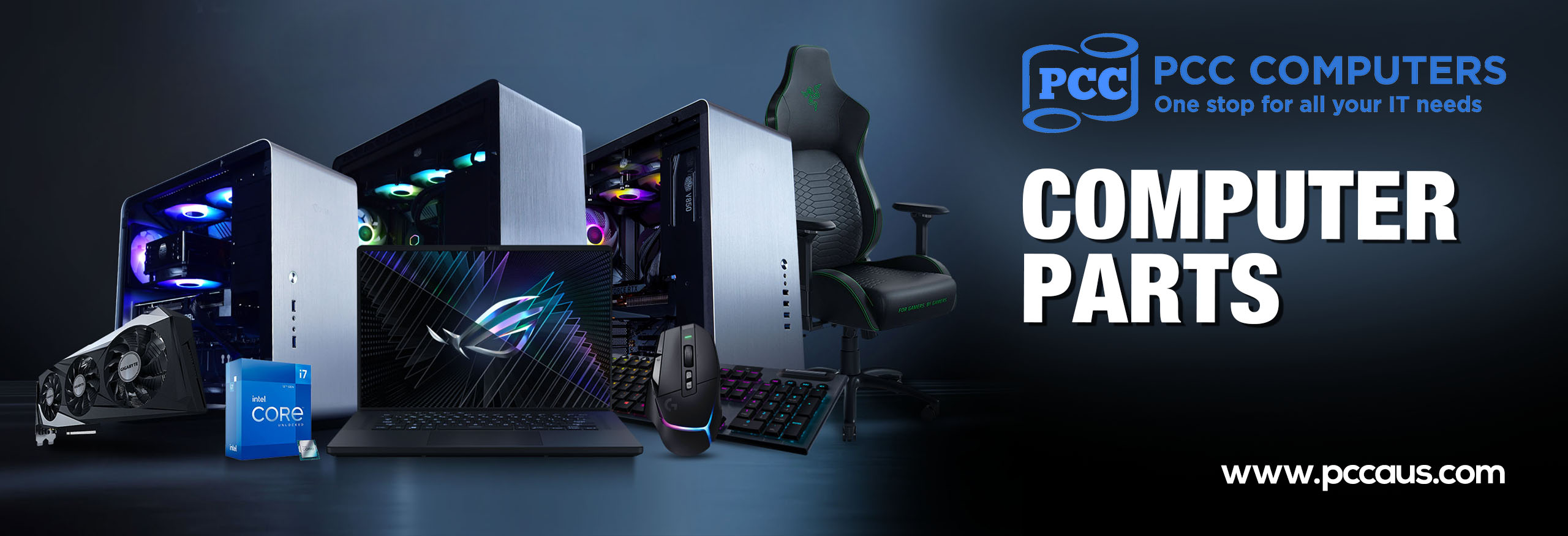Understanding Computer Parts: A Comprehensive Guide

Understanding Computer Parts
When diving into the world of technology, one of the
fundamental aspects to understand is computer parts. Whether you're building
your own PC, upgrading an existing system, or just curious about what makes
your device tick, knowing about the various computer parts is essential. In
this blog, we will break down the key components, their functions, and why they
are crucial for your computer's performance.
Key Computer Parts and Their Functions
1. Central Processing Unit (CPU)
The CPU, often referred to as the brain of the computer,
is responsible for executing instructions from programs. It performs
calculations, makes logical decisions, and manages data flow within the system.
A powerful CPU can significantly enhance your computer's performance, making it
faster and more efficient.
2. Motherboard
The motherboard is the main circuit board that houses the
CPU, memory, and other essential components. It provides the necessary
connections for these parts to communicate with each other. When selecting a
motherboard, consider compatibility with your CPU and other components to
ensure optimal performance.
3. Random Access Memory (RAM)
RAM is the temporary storage space your computer uses to
hold data that is being processed. More RAM allows your computer to handle more
tasks simultaneously, improving multitasking and overall speed. For gaming,
video editing, and other intensive tasks, having sufficient RAM is crucial.
4. Storage (HDD/SSD)
Storage devices, such as Hard Disk Drives (HDD) and Solid
State Drives (SSD), are where your data is permanently stored. SSDs are faster
and more reliable than HDDs, making them a popular choice for modern computers.
Adequate storage space ensures you can save your files, install applications,
and run your operating system smoothly.
5. Graphics Processing Unit (GPU)
The GPU handles rendering images, videos, and animations.
It's especially important for gaming, video editing, and any graphics-intensive
applications. A high-quality GPU can greatly enhance visual performance and is
a key component for gamers and creative professionals.
6. Power Supply Unit (PSU)
The PSU converts electricity from your wall outlet into a
form that your computer can use. It supplies power to all components within the
system. Ensuring you have a reliable PSU is important to prevent power issues
and maintain system stability.
7. Cooling System
Keeping your computer cool is vital for maintaining
performance and extending the lifespan of your components. Cooling systems
include fans, heat sinks, and liquid cooling solutions. Proper cooling prevents
overheating, which can cause hardware failures and reduce efficiency.
8. Case
The case houses all your computer parts and provides
protection and ventilation. It comes in various sizes and designs, so choose
one that fits your components and allows for adequate airflow.
9. Peripherals
Peripherals include external devices like monitors,
keyboards, mice, and printers. These are essential for interacting with your
computer and completing various tasks. High-quality peripherals can improve
your computing experience and productivity.
Why Understanding Computer Parts is Important
Understanding computer parts allows you to make informed
decisions when purchasing or upgrading your system. It helps you identify the
components that need an upgrade to boost performance or resolve issues.
Additionally, knowledge of computer parts can save you money, as you can
troubleshoot and replace parts yourself instead of paying for professional
repairs.
Whether you're a gamer seeking the best graphics, a
professional requiring powerful processing, or a casual user wanting a reliable
system, knowing about computer parts is the first step in creating a computer
that meets your needs. By understanding how these components work together, you
can optimize your system for peak performance and enjoy a seamless computing
experience.
Conclusion
Computer parts are the building blocks of any computer
system. From the CPU and RAM to the GPU and cooling systems, each component
plays a crucial role in the overall functionality and performance of your
computer. By familiarizing yourself with these parts, you can make better
decisions, troubleshoot issues, and create a system tailored to your specific
needs. Whether you're a novice or a tech enthusiast, understanding computer
parts is an invaluable skill in today's digital age.



